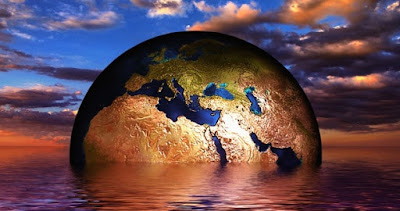Miscellaneous material for your mid-week reading.
– Paul Wells argues that climate change and First Nations reconciliation – two of the issues which the Libs have tried to turn into signature priorities – look set to turn into areas of weakness as Justin Trudeau continues his party’s tradition of dithering. And Martin Lukacs writes that Trudeau’s handling of continuing injustice facing First Nations has involved an awful lot of flash but virtually no action:
The extractivist worldview—bent on treating everything as a commodity—that lay behind Stephen Harper’s resource agenda just as powerfully shapes Trudeau’s. In fact, the Liberals’ attempt to wrap themselves in the UN Declaration without embracing its central right may constitute a new, more subtle form of extraction: the extraction from Indigenous territory of consent itself.
Liberal moves to extract and manufacture consent and support for outdated policies are evident elsewhere: restoring funding to the Assembly of First Nations, a government-dependent organization that has since plumped frequently for them; appointing an Indigenous Justice Minister, even though Indigenous critics argue she has sided with the government agenda throughout her political career; and agreeing to call an inquiry into missing and murdered Indigenous women, but with a mandate far short of what impacted families wanted. As the weight of reality presses against Trudeau’s rhetoric, the ability to generate consent is crumbling.
Reconciliation is a powerful hope, an uplifting prospect, a deeply desired new relationship that Trudeau has compellingly invoked. But if reconciliation does not include the restitution of land, the recognition of real self-government, the reigning in of abusive police, the remediation of rivers and forests, it will remain a vacant notion, a cynical ploy to preserve a status quo in need not of tinkering but transformation. It will be Canada’s latest in beads and trinkets, a cheap simulation of justice.
– Guy Caron discusses the CRA’s role in Canada’s two-tier tax system. Stephen Punwasi comments on the connection between Canada’s willingness to facilitate tax avoidance, and the real estate bubbles driving housing prices far beyond what working-class Canadians can afford. And Marc Lee then highlights the connection between soaring urban real estate prices and increased inequality.
– David Ball notes that many municipalities are retaking control over their own services after learning that the promises of efficiency through privatization are entirely illusory.
– Richard Orange points out Sweden’s intriguing idea of reducing taxes on repair services to discourage people from throwing out consumer goods. But I’d wonder whether that step alone would make a dent if it isn’t paired with a concerted effort at training potential repair workers for a job which the corporate sector would prefer to eliminate.
– Finally, Paul Mason makes the case for economics to be based on real-world observations of human behaviour, rather than insular mathematical models whose assumptions about market efficiency bear no relationship to reality. And Branko Milanovic discusses the need to measure and reduce inequality as part of a global development strategy.
Continue reading







